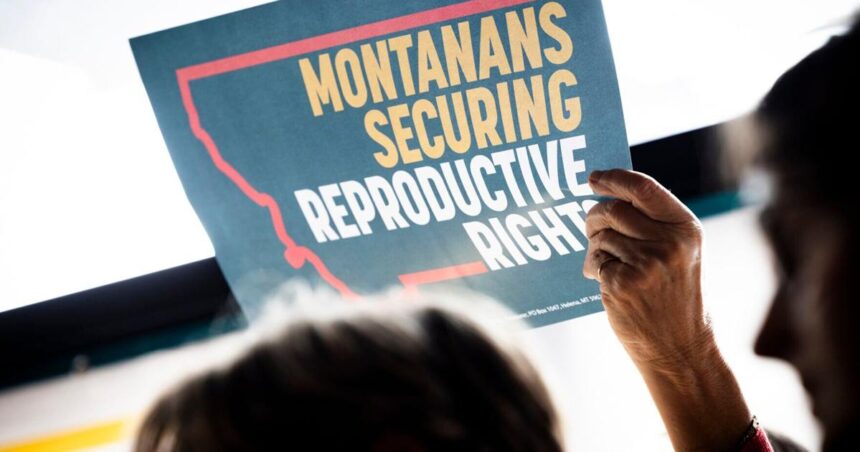Following months of legal battles and a shortened signature collection process, voters will now have the opportunity to include abortion rights in the Montana Constitution come November, as announced by the Secretary of State’s office on Tuesday night.
Members of Montanans Securing Reproductive Rights, the coalition behind Constitutional Initiative 128, received confirmation via email from the Secretary of State’s Office that enough verified signatures had been collected for the measure to be placed on the ballot. This information was also made available on the office’s website.
The announcement comes just two days before Secretary of State Christi Jacobsen’s deadline to certify the signatures.
“We’re thrilled that CI-128 will be on the ballot in November, allowing Montana voters to have their voices heard and protect reproductive rights,” said Martha Fuller, president and CEO of Planned Parenthood Advocates of Montana and spokesperson for MSRR, in a press release.
People are also reading…
Currently, abortion is legal in Montana based on a court precedent linked to the Montana Constitution’s right to privacy. However, CI-128 would amend the state Constitution to explicitly outline the right to an abortion up to fetal viability and provide protections for abortion access in later stages of pregnancy if a health care professional deems it necessary for the patient’s life or health.
For a constitutional amendment to be on the ballot, signatures must be gathered from 10% of the total number of eligible voters in Montana, based on the votes cast for the office of governor in the most recent general election. At least 10% of voters in 40 legislative house districts must be represented.
Signatures must first be verified by county election officials, followed by the secretary of state.
In June, MSRR submitted over 117,000 signatures from all 56 counties in support of CI-128, surpassing the legal requirement by almost double.
Following this submission, there was a complex exchange between Jacobsen’s office, MSRR, and Montanans for Election Reform (MER), another group associated with two ballot initiatives related to election reform, creating uncertainty regarding the future of the abortion ballot measure.
The secretary of state deemed many signatures invalid due to a technicality related to the definition of qualified electors and adjusted the voting software accordingly. MSRR and MER filed a lawsuit alleging that Jacobsen unlawfully disqualified registered voters who had signed the petition.
A District Court judge in Lewis and Clark County ruled in favor of MSRR, compelling Jacobsen’s office to validate those questioned signatures as long as they met other validation criteria.
“Voting yes on 128 empowers Montanans and their families,” Fuller stated in the release. “Government interference in our most personal health care decisions is unacceptable, and Montanans must vote yes on 128 to safeguard their right to abortion and pregnancy-related care.”
As of the publication of this story on Tuesday evening, the secretary of state had not provided an update on whether MER’s two ballot initiatives had secured enough signatures for certification and placement on the ballot. The deadline is Thursday, Aug. 22.
Carly Graf is the State Bureau health care reporter for Lee Montana.





